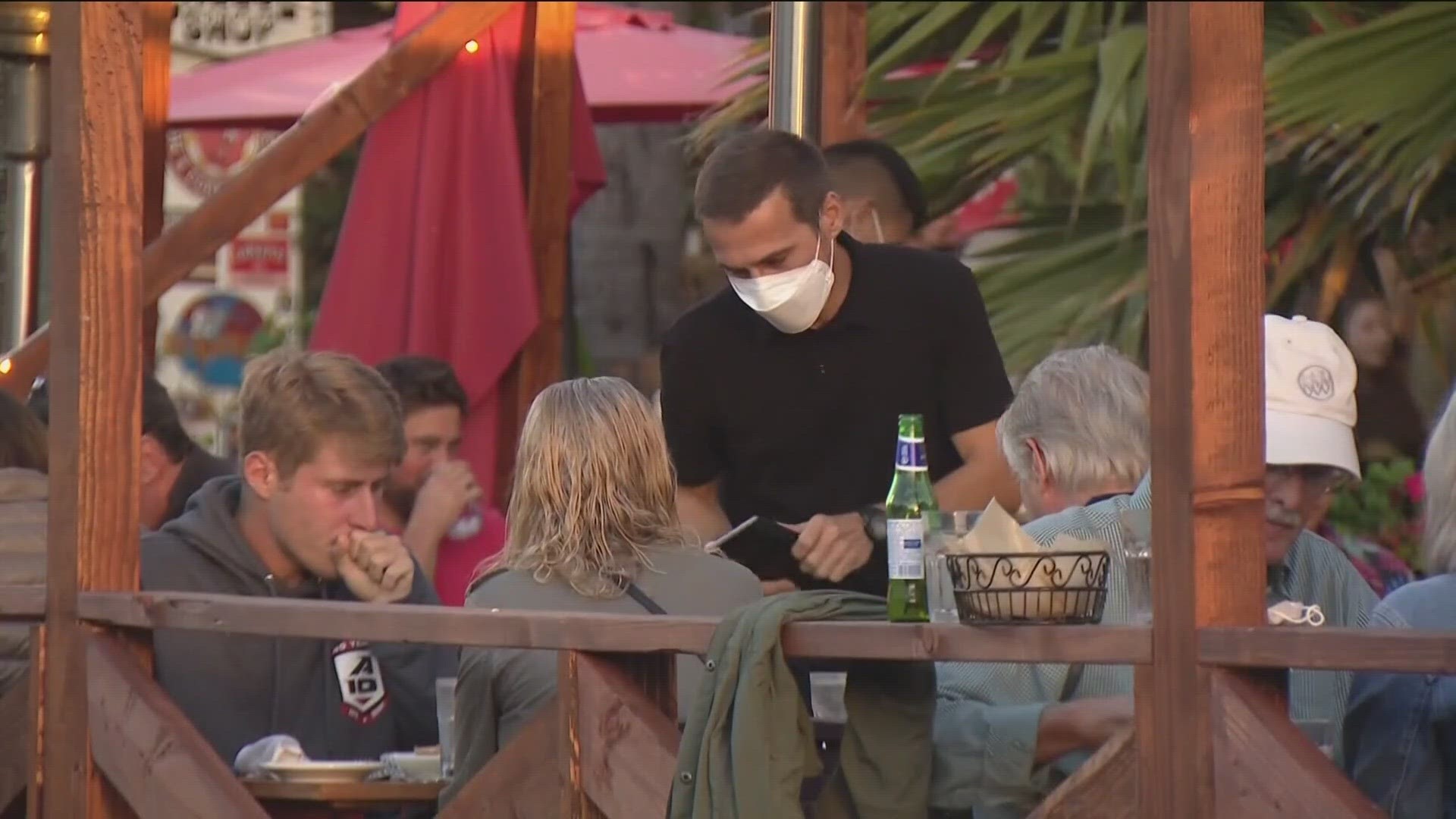SACRAMENTO, Calif. — Governor Gavin Newsom addressed Californians again on Friday at noon about the state’s response to COVID-19.
The biggest issue that the governor touched on was the new way the USNS Mercy will be used. Newsom said the ship will prioritize seniors from nursing homes that are not infected with COVID-19. He says the ship will be used to get the healthy people away from those who are infected trying to reduce hot spots.
Newsom also said an idea that was brought about via NBA star Steph Curry and his wife, Ayesha. FEMA will now help support local restaurants to deliver meals to seniors who are isolated at home. Newsom said Meals on Wheels is a fantastic organization, but it is unable to supply all the meals that are needed.
Governor Newsom also updated numbers from the state. There are 19,472 confirmed cases and there have been 541 deaths. There are now 1,145 people with COVID-19 in ICU beds across the state which represents a 1.1% increase from this time yesterday.
At Thursday’s press conference the governor confirmed that people receiving unemployment through the state of California would be getting $600 more a week starting on Sunday as part of the CARES Act. Newsom also said that California will provide frontline health care workers with hotel rooms at no-or low cost and free flights for California’s Health Corps.
These announcements came on the heels of California’s partnership with non-profits and other companies that will create a pipeline of 200 million masks a month for the state.
RELATED: California to provide frontline health care workers with hotel rooms, flights at no-or low cost

View all News 8 coverage of coronavirus / COVID-19
News 8 has joined forces with The San Diego Foundation to raise immediate, emergency funds for our most vulnerable neighbors in need. Here is how you can help.
We also have a Frequently Asked Questions page we will continue updating with the latest information and reports.
Click here to watch "Facts Not Fear," a News 8 Special on coronavirus from March 26, 2020.
BACKGROUND
According to the CDC, coronavirus (COVID-19) is a family of viruses that is spreadable from person to person. Coronavirus is believed to have been first detected in a seafood market in Wuhan, China in December 2019. If someone is sick with coronavirus, the symptoms they may show include mild to severe respiratory illness, cough, and difficulty breathing.
Currently, there is no vaccine, however, the CDC suggests the following precautions, as with any other respiratory illness:
Know how it spreads
There is no vaccine
The best way to prevent illness is to avoid being exposed to the virus
It is thought to spread mainly from person-person between people in close contact
And believed to be spread by respiratory droplets produced when an infected person coughs or sneezes
Protect yourself
Wash your hands with soap and water for a minimum of 20 seconds
If soap and water aren't available, use hand sanitizer that contains at least 60% alcohol
Avoid touching your eyes, nose, and mouth
Avoid close contact with people who are sick
Put distance between yourselves and others
Protect others
Stay home when you are sick
Wear a facemask if you are sick
Cover your cough or sneeze with a tissue, then throw the tissue in the trash
If you don't have tissue, cough or sneeze into the inside of your elbow
Immediately wash your hands after coughing and sneezing
Clean and disinfect frequently touched objects and surfaces using a regular household cleaning spray or wipe
You can find information on disinfecting and cleaning on the CDC's How to Protect Yourself page.
The California Department of Public Health has issued guidance on the use of cloth face coverings to protect against the spread of the novel coronavirus COVID-19.
The County of San Diego has made face coverings mandatory for those working with the public including grocery stores, pharmacies, gas stations, convenience stores, and similar businesses.
While officials say these face coverings are not a substitute for practices like social distancing and handwashing, there is evidence to suggest that the use of cloth face coverings by the public during a pandemic could help reduce disease transmission. Officials do not recommend the public use N-95 or surgical masks which are needed by health care workers and first responders.



